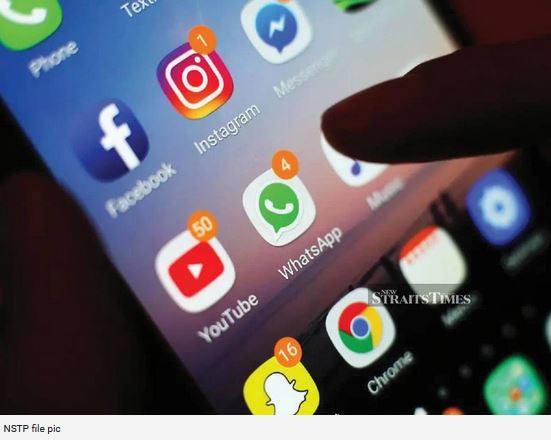Someone needs to be responsible for what appears online
Emeritus Professor Tan Sri Dato' Dzulkifli Abdul Razak
Opinion - New Straits Times
October 12, 2021
DIGITALISATION is very much in the air. For example, the theme of the academia month beginning Oct 5 is "Akademia diperkasa, digitalisasi dibudaya" (Academia is enhanced, digitalisation encultured).
Meaning, incorporating digital technologies into the processes, mainly of business, with the goal of improving them.
This time it includes education to make it transformative, while attempting to change the way we deal with the educational community, to deliver and generate knowledge in a new way.
The use of technologies is referred with the belief that education will be enhanced as well.
The assumption is that digitalisation will enable automation, increase data quality and improve related structures so that the application of advanced technology can be heightened.
In this context, digitalisation in education implies the use of computing devices, the Internet, software applications and platforms to accommodate different digital interactions with students and staff.
While this sounds desirable as a default, even regarded as a panacea to some, the downsides are often left unarticulated so much so the drive towards technology is taken for granted, oblivious of the consequences.
The more familiar negative ones include work overload, privacy breaches, social disconnect, digital manipulation, anonymity and fake personas, plagiarism, copyright violation and over-reliance on gadgets.
This often leads to social alienation, loneliness, addiction and "secondhand living".
In some circumstances, crime, terrorism and safety concerns, including data security, are growing as well.
An explosive exposé emerged recently when a former Facebook employee blew the whistle on the "misconduct" of the company.
Frances Haugen, a Harvard Business School degree holder and who worked for The Wall Street Journal, had left a testimony that led many to question whether digitalisation is safe enough to be relied on without causing social and moral harm.
This includes Joshua Greene, Harvard professor of psychology and the author of Moral Tribes: Emotion, Reason, and the Gap Between Us and Them, who remarked that Facebook executives' moral emotions are not well-tuned to the consequences of their decisions.
The company has been accused of "stoking division through the use of algorithms that promote polarising content and ignoring the toxic effect its Instagram app has on teenage girls".
Greene agreed that companies like Facebook had a moral responsibility to their users and the public since they had "enormous power over people's lives".
Unfortunately, as Haugen alleged, Facebook makes disastrous choices for the people who used the platform.
The problem is that Facebook wants to control large swaths of the world's information infrastructure but does not want to be responsible for the world.
Greene said: "They want to hear those coins clink every time someone hops on the information highway, but they don't want to be responsible for its safety.
"Nothing is going to change until the decisions about what's safe are made by people whose incentives are aligned with the public good, instead of aligned with corporate profit."
Under such circumstances, the academic month's theme has much deeper implications.
Foremost, is academia enhanced or weakened when the mental health of millions of users, especially teenagers, is in peril?
And the institutions are unable to do much to prevent them from happening.
That is assuming they are sensitive enough to discern what is going on and take action. In the current situation, it would be hard when digitalisation is to be "encultured".
A mechanism is needed to prevent the worst outcomes. Causal responsibility must align with moral responsibility.
As in the case of the print media, publishers take responsibility for what they publish. They are held accountable.
Someone needs to be responsible and held accountable for what appears online. At least for the worst offenders — the ones who have the biggest audiences and can do the most damage.
They need to be regulated rigorously so that digitalisation can be safeguarded before being considered for enculturement so that no harm will occur.
The writer, an NST columnist for more than 20 years, is International Islamic University Malaysia rector

